In the Spring of 2020, the COVID-19 pandemic disrupted the lives of college students around the world with classes moving online, internships rescinded, and graduation ceremonies cancelled. These developments have affected the career plans and aspirations of a generation of college students. CCWT launched this oral history project to document and amplify student voices and experiences during the pandemic.
The pandemic has had significant impacts on the daily lives of many. College students have been forced to transition from the classroom to the couch and from dorm life back to their family homes. Students are struggling with declining motivation, nonexistent social lives, and limited access to necessary resources. They have also been forced to grapple with the challenges of balancing school and family in the same space. Just as the physical distinctions between work and home have dissolved, for many, so too have school-home life boundaries.
Alexandra Pasqualone, Vivien Ahrens, Thaddeus Gue, and Esther Ama Safia Mohammed at CCWT conducted and edited the following interviews, which demonstrate the challenges of learning and working during a pandemic. They show many of the ways students struggle to establish boundaries between these overlapping environments.
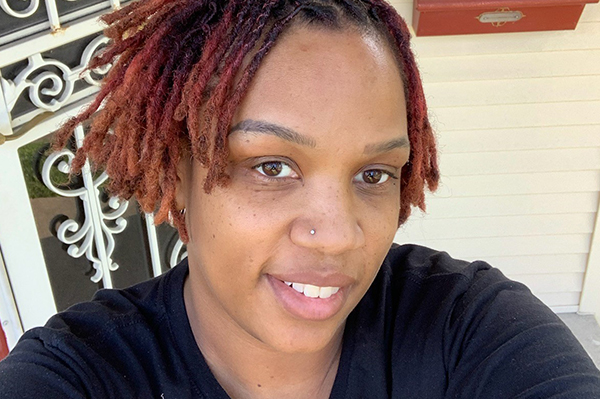
“I have a three-year-old and a 10-year-old. I’ve been home with them every single day.”
At the time of our conversation with Jerrina Roundtree, the pandemic, and the many shifts that came with it, had just begun. Jerrina spends a good portion of the interview addressing her internship experience, yet her discussion on the ways the pandemic has affected her own life quickly pivots to her responsibilities at home.
In spring 2020, Jerrina was a student in her senior year at Milwaukee Area Technical College focusing on becoming a child services professional. She wants to “be on the forefront of helping people get to where they need to be.” In multiple positions with the Division of Milwaukee Child Protective Services – first as a case aid, later an intern, and now office assistant – she was able to demonstrate her talent for “dealing with people,” resulting in a recent offer for a position as a social worker. She hopes to graduate this Fall with an associate’s degree in human services.
Things quickly change for her mid-March when, in addition to keeping up with her own studies, she also has to transition the role of full-time parent at home.
Jerrina: I have a three-year-old and a 10-year-old. I have been home with them every single day. I am teaching my kids, trying to help them with their studies and trying to keep up with my studies.
Prior to the pandemic, Jerinna’s internship with the Division of Child Protective Services included working on cases with social workers and assisting with TPC [Temporary Physical Custody]. This position also required her to work with kids; accompanying them to a doctor’s appointment while she interviewed the parents, entertaining children while the mother talked with the social worker, picking the children up from school, and helping with childcare during court appointments. Her duties also included gathering background information on the parents and the kids and getting information from relatives. Post pandemic, she contended with similar, yet distinct difficulties related to the ways school experiences, work experiences, and family life began to intersect.
Studies are not the only factor impacted by her new full-time schedule and responsibilities at home. Jerrina also discusses the difficult decision she faces when looking for jobs:
Jerrina: I have applied for a few jobs, that maybe I can work from home, but my main focus is to keep my family safe.
Prioritizing the safety of her family has altered her ability to accept jobs outside of the home, a concern shared by many families these days.
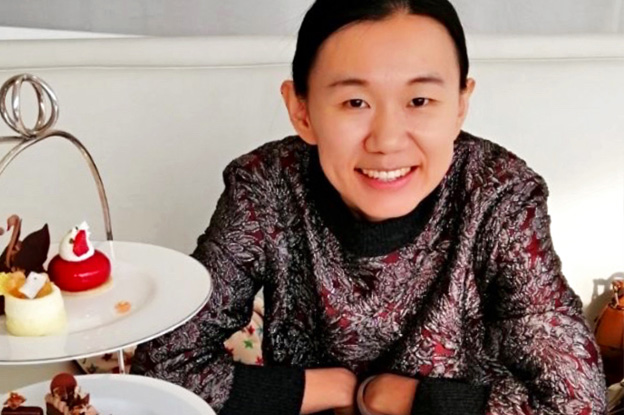
“Since I have children at home who are noisy and want attention from parents, I would often go to the library to study.”
Like Jerrina, Shuqi Wang plays a dual role as a student and mother. The switch to remote learning also had her juggling responsibilities at home and at work.
Shuqi is a graduate student in the Department of Curriculum and Instruction at UW-Madison. After several years of experience in management and the birth of her first child, Shuqi decided to further her career by enrolling in graduate school and focusing on informal learning. She states, “I’m interested to learn how to design a curriculum, how to build a better learning environment, and then I can work to help the next generation to learn.” In her interview, Shuqi notes both the hurdles and benefits of transitioning to remote learning as a graduate student. She also discusses how the recent anti-racism protests have impacted her thinking about race.
Prior to the pandemic, Shuqi relied on campus study spaces such as the library. The switch to remote learning meant staying at home and living with her family.
Shuqi: Unfortunately, it is not very good that the campus is closed. There are no classrooms open and the library is also closed. Last semester, since I have children at home who are noisy and want attention from parents, I would often go to the library to study.
In addition to the challenges of being denied access to quiet study spaces, Shuqi also contends with new challenges related to her research and her experience as a student. Conferences have been canceled and travel limited, influencing her ability to seek outside collaborations. Discussing remote learning, she notes “remote learning has been going well although maybe I am not an active member of each team. I am always silent and not good at talking.”
Despite these newfound challenges, Shuqi also addresses the perks of working from home. Prior to the shift to online courses, Shuqi relied heavily on her family members to drive her to school. Although limited study spaces influence Shuqi’s life as a student, transitioning to online learning has also relieved the burdens of commuting between home and school. In this sense, the blending of school and home-life boundaries have been beneficial.
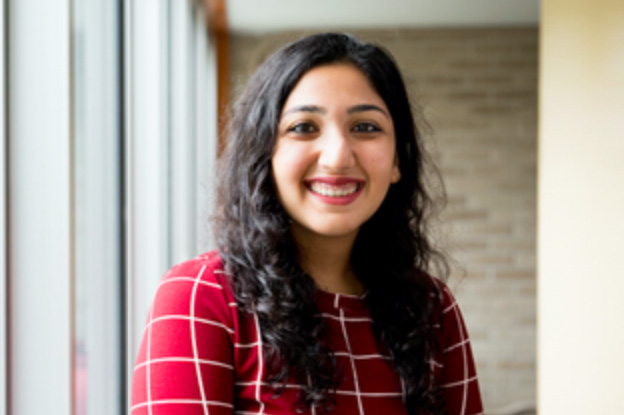
“It felt like my parents thought I was not in college anymore.”
While COVID forced Jerrina and Shuqi to shift their attention to family and home life, other students have had their own distinct experiences of homelife bleeding into their studies when living with family.
Shehrose Charania is a Health Promotion and Health Equity major, minoring in Global Health and Public Policy. In her interview she discusses her experiences transitioning out of her job as a housing fellow, her role applying to and obtaining internships, and the challenges she faced when determining her next steps. Shehrose also addresses experiences as a Muslim student and the ways the current protests have impacted her.
Noting the difficulty in conveying her role as a student to her parents, after moving back home following school closures, Shehrosse resumes to attend to many of the responsibilties she had as a high schooler. She states, “it felt like my parents thought I was not in college anymore”
Conveying these concerns was complicated by language barriers and her experience as a first-generation college student.
Shehrose: It was also hard for them to understand that “Look I am in a Zoom meeting, I am actually in class.” It was difficult to get back into the family dynamic.
After her mother and sister test positive with COVID, she assumes more responsibilities as a family caregiver. The attic space quickly turns into her live-in classroom in an unsuccessful attempt to continue classes while quarantining from infected family members. Shehrose recalls the moment she discovered she tested positive for the virus.
Shehrose: My reports were emailed to me while I was in class. I was thinking “wow, I am a student, but I am also dealing with this right now.” I felt like it was a twisted thing that was going on. I could not imagine how many other students were experiencing this as well.
As if taking care of a family at home is not overwhelming enough, Sherose also has to contend with assisting underclassmen as her school’s housefellow. It is her job to break the news to the freshmen she works with despite knowing very little about what the university is trying to communicate. The pandemic has not only led to her new responsibilities as home, but also her shifting role as a school employee.
To read more about Shehrose’s experiences as a student and caregiver for her family, click here.
The challenges of living at home while taking college-level courses have impacted students in a multitude of ways. Whether managing a family as a parent, sibling, or child, students dealing with the pandemic have been forced to balance these roles while continuing coursework in their homes.
Staff
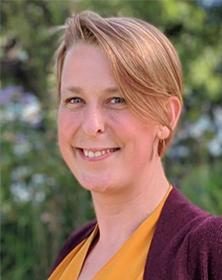 Vivien Ahrens is a Project Assistant at the Wisconsin Center for Education Research, and a doctoral student in Civil Society and Community Research at the University of Wisconsin-Madison. She holds a master’s degree in Social and Cultural Anthropology from the Ludwig-Maximilians-Universität, Munich, Germany. Vivien is interested in educational program evaluation. She aims to contribute to participatory evaluation methods that support participants’ and facilitators’ reflections on program goals, outcomes, and indicators of success. Before joining WCER, Vivien coordinated Centro Hispano’s Escalera Program at Madison East High School – an after-school program that supports Latinx youth in taking the next steps towards their goals, accessing higher education and advanced careers.
Vivien Ahrens is a Project Assistant at the Wisconsin Center for Education Research, and a doctoral student in Civil Society and Community Research at the University of Wisconsin-Madison. She holds a master’s degree in Social and Cultural Anthropology from the Ludwig-Maximilians-Universität, Munich, Germany. Vivien is interested in educational program evaluation. She aims to contribute to participatory evaluation methods that support participants’ and facilitators’ reflections on program goals, outcomes, and indicators of success. Before joining WCER, Vivien coordinated Centro Hispano’s Escalera Program at Madison East High School – an after-school program that supports Latinx youth in taking the next steps towards their goals, accessing higher education and advanced careers.
 Alexandra Pasqualone is a second-year student in a Joint PhD in Educational Policy Studies (EPS) and History. She has spent several years teaching in various capacities, including positions as a high school teacher in NJ, an English teacher at Akdeniz University in Turkey, and a Career Access and College Readiness Coordinator in Philadelphia. She is broadly interested in the historical role of youths as major activists who spurred changes within their communities. As part of her MA thesis at the University of Cincinnati, Alexandra conducted an oral history project attending to the protests of high school students in Philadelphia during the late 1960s and 1970s. Her current research centers around the implications of schools on Arab-American identity formation during the mid-twentieth century.
Alexandra Pasqualone is a second-year student in a Joint PhD in Educational Policy Studies (EPS) and History. She has spent several years teaching in various capacities, including positions as a high school teacher in NJ, an English teacher at Akdeniz University in Turkey, and a Career Access and College Readiness Coordinator in Philadelphia. She is broadly interested in the historical role of youths as major activists who spurred changes within their communities. As part of her MA thesis at the University of Cincinnati, Alexandra conducted an oral history project attending to the protests of high school students in Philadelphia during the late 1960s and 1970s. Her current research centers around the implications of schools on Arab-American identity formation during the mid-twentieth century.
 Esther Ama Safia Mohammed is a Fall 2020 graduate of the Professional French Master’s Program at UW-Madison. She also holds a master’s degree in Linguistics and Didactics from the University of Cape Coast, Ghana. Her academic research on student motivation and international mobility informs her understanding of Human resource development. Ama has gained diverse professional experiences from working as a teaching assistant in Cape Coast, as an executive assistant at a logistics company in Burkina Faso, as an assistant manager of a cocoa cooperative in Cote d’Ivoire and as a project assistant in a philanthropic organization in Quebec. In summer 2020, Ama worked at CCWT with a team of student-workers to collect oral histories to document student-experiences during the coronavirus pandemic. Through this work, she gained insight into student anxieties concerning their future careers in the fast-approaching post-Covid world.
Esther Ama Safia Mohammed is a Fall 2020 graduate of the Professional French Master’s Program at UW-Madison. She also holds a master’s degree in Linguistics and Didactics from the University of Cape Coast, Ghana. Her academic research on student motivation and international mobility informs her understanding of Human resource development. Ama has gained diverse professional experiences from working as a teaching assistant in Cape Coast, as an executive assistant at a logistics company in Burkina Faso, as an assistant manager of a cocoa cooperative in Cote d’Ivoire and as a project assistant in a philanthropic organization in Quebec. In summer 2020, Ama worked at CCWT with a team of student-workers to collect oral histories to document student-experiences during the coronavirus pandemic. Through this work, she gained insight into student anxieties concerning their future careers in the fast-approaching post-Covid world.
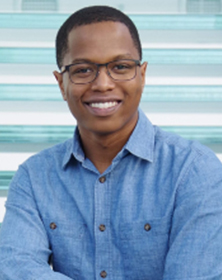 Thaddeus Gue is a fourth-year Posse Scholar majoring in Interior Architecture at the University of Wisconsin-Madison. His professional interests are focused on design strategy and user-oriented environments. He is specifically interested in using design thinking and evidence-based research to improve healthcare and commercial environments through quantitative and qualitative means.
Thaddeus Gue is a fourth-year Posse Scholar majoring in Interior Architecture at the University of Wisconsin-Madison. His professional interests are focused on design strategy and user-oriented environments. He is specifically interested in using design thinking and evidence-based research to improve healthcare and commercial environments through quantitative and qualitative means.
